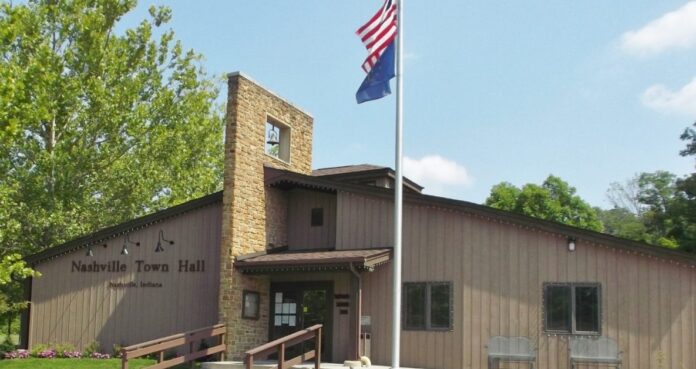The Nashville Town Council is revisiting its nuisance laws that deal with “vegetation” such as yard grass as well as the general maintenance of property.
At the June meeting, Town Attorney James T. Roberts introduced a draft ordinance based on one from Indianapolis, titled “An Ordinance Establishing Standards for the Maintenance and Care of Real Property and Improvements in the Town of Nashville and Establishing Remedies and Penalties for Violations.” He told the council he wanted to get feedback on it.
It defines standards that town officials would use to decide whether or not a property is in compliance with ordinances. Right now those ordinances are “really vague” and written in language that might seem like “poetry to a lawyer,” Roberts said, but isn’t necessary clear to regular readers.
Currently, the town prohibits “the collection of any offal, filth or noisome substance in any place to the damage or prejudice of others or the public”; putting buildings, fences or other items on public land that could injure someone; failing to maintain any structure to the point that it could endanger the public; failing to cut and remove “weeds and other rank vegetation” on your property; and spraying “herbicides, pesticides or other agents which might cause toxic or allergic reactions” among neighbors without prior notification.
Whenever any of the above “nuisances” occur, the town issues five consecutive notices to the landowner, and if the owner doesn’t remove the nuisance, the town can remove the nuisance and bill the landowner. If the landowner doesn’t pay that bill, it can be tacked onto the tax bill.
If the owner doesn’t heed a first warning of a violation, or is “flagrantly irresponsible or incompetent” in the use of pesticides or the like, then the town attorney can take further legal action, according to the current ordinance.
Roberts said that making changes could “put a little more teeth in what we have, make it a little more workable.” He also mentioned that Town Administrator Phyllis Carr had concerns about sending someone out to mow a person’s property when that person didn’t want it to be mowed. That’s something the town can already do under its current rules.
The current rules were first passed in 1978 and amended in 1991.
The draft of the new rules covers much more than lawn height in town. It includes rules addressing:
- Materials on a property that create a health, safety or fire hazard, such as “high grass and rubbish, weeds, garbage,” dead trees or limbs. Grass and weeds are to be kept below 12 inches. That height is up for discussion, as is everything else in the draft.
- Trees, shrubs and other vegetation. This is to be trimmed so that damage doesn’t occur to any structures, and if damage has occurred, it is to be repaired.
- The accumulation of “junk, trash and debris, boxes, lumber, scrap metal, junk vehicles or any other materials in such a manner that may provide rat harborage.” Stored materials are to be elevated at least 18 inches off the ground.
- Swimming and wading pools. They are to be enclosed with a gate and cover, and if they aren’t functional, they are to be removed.
- Water. Owners shall be responsible to ensure water from the premises is disposed of so that it doesn’t interfere with the operation of private sewage disposal systems, create standing water, or become a breeding ground for mosquitoes. Gutters and downspouts are to be maintained in good working condition.
- Vermin and insects. Property owners are responsible for their extermination and “rat-proofing” must be done.
- Foundations, roofs, chimneys, fences, exterior walls, doors, skylights, windows, ceilings, porches, stoops, verandas, balconies and walks. All must be maintained in “sound condition and good repair.” Rules for hand rails, guard rails, balusters and other protections for stairs and porches also are included in the draft. Any open or insecurely covered cisterns, cellars or other pits must be filled in.
- Exterior wood surfaces. All exterior wood other than “decay-resistant woods” shall be painted or protected with some other preservative material. Lead-based paint is prohibited.
- Accessory structures. All must be structurally sound, free of vermin and insects, painted or otherwise preserved, and every entry secured.
- Asbestos-containing materials. If these exist on a property, they must be maintained in good repair.
The Nashville Development Review Commission, a committee which reports to the town council, recently shelved a proposed historic preservation ordinance. One of the reasons was that commission members didn’t believe it adequately addressed property maintenance.
The rules Roberts gave the council were just a first draft. He planned to go over it at the July meeting, which will be Thursday, July 18 starting at 6:30 p.m. at Town Hall.
[embeddoc url=”http://www.bcdemocrat.com/wp-content/files/sites/3/2019/07/Nashville-Building-Maintenance-Ordinance-first-draft.pdf” download=”all”]





